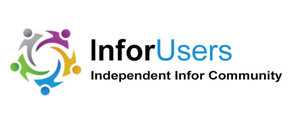Balancing Emerging Technology Solution Innovations Against Risk
CIOs and CMIOs are bombarded daily with emails and texts from emerging technology vendors that are desperate to find healthcare provider clients that are more likely to take on higher risk levels for new technologies that address critical healthcare delivery needs. Healthcare organizations may consider new innovative technology products if the associated risk factors are within the benchmarks set by executive management. Risk factors associated with the time to go live, rate of clinician adoption, time to realization of expected benefits, ability to scale the product across several modalities of care, delivery of needed functions and features to support clinician workflows, and ability to efficiently and effectively integrate with key enterprise application suites are usually critical decision points for moving forward with emerging technology solutions.
The challenge for evaluating these risk factors is that these companies usually have small customer bases and no resources to provide accurate, honest, and impartial analysis of measurable results. While vendors will provide access to their clients for prospects to discuss the products with, there is no standard methodology to help provide a complete assessment of product capabilities and risk. Without such a resource, healthcare organizations are flying blind, and that usually results in a poor outcome for new technology projects. In turn, this may create an executive bias against testing early innovations of technology that may have a significant impact for improving healthcare delivery by the organization.
KLAS Spotlight Research and Risk Quadrants
KLAS has traditionally created insightful and actionable research for established healthcare IT vendors. The research model for this content consists of interviewing at least 14 unique vendor customers against key product functions, features, and service capabilities. That data is used to score the vendor and then compare the vendor to competitors in a specific market segment. KLAS has become recognized as a trusted advisor in healthcare IT research based on the market acceptance and use of these studies. But emerging technology companies with smaller customer bases require a different research model to provide analyses of these companies that deliver accurate product insights and risk factors.
Spotlight research (First Look research for established healthcare companies delivering emerging technologies to their product portfolios) have been created by KLAS to provide insights into key deliverables that help define the long-term viability of these emerging companies. The Spotlight research components evaluate:
- Vendor clients who identify the product as “easily scalable.”
- Percentage of clients who saw expected outcomes within six months.
- Product has needed functions and features.
- Quality of implementation services.
- Ability to support integration goals.
The research also includes the vendor CEO interview, and an evaluation of key solution technology components that reviews cloud environments, databases used, application development platforms, security features, data encryption approaches, and HIPAA compliance. This information identifies potential technological obsolescence that could impact long-term viability.
From this data, KLAS has created Spotlight Risk Graphs that allow healthcare organizations to quickly evaluate risk exposures for emerging technology solutions they may be considering.
Identifying Emerging Technology Risk Drives Successful Outcomes
The ability of key executives that oversee healthcare innovation projects to quickly assess the potential benefits of an emerging technology solution against potential risks creates the foundation for implementation strategies that can be used to increase adoption and the successful use of these solutions. Armed with data from healthcare organizations that have launched emerging technology projects, clinicians and operations managers will likely improve the consideration and support of the executive management team that is accountable for these investments and potential liabilities. Insights generated from Spotlight/First Look reports will provide a much-needed resource for healthcare organizations to manage their emerging technology expectations and risk exposure.
Assessing Key Outcomes
Currently KLAS has created four risk quadrants for evaluating emerging technology solutions.
- ROI Risk Quadrant – Solution is easily scalable versus achieved outcomes in six months.
- Capability Risk Quadrant – Solution is easily scalable versus has needed functions and features.
- Optimization Risk Quadrant – Achieved outcomes in six months versus quality of implementation.
- Interoperability Risk Quadrant – Achieved outcomes in six months versus supports integration goals.
Success Factors
- Review the vendor solutions position on the ROI Risk Quadrant and read the corresponding Spotlight research findings for emerging technology solutions of interest.
- Contact the Emerging Technology team with additional questions regarding any of the solutions we have measured to date and for access to the other Risk Quadrant charts.
- If an emerging solution technology solution being considered has not been evaluated by KLAS, please contact KLAS to determine the potential of an emerging technology company to complete the research process.
Summary
Healthcare is transforming care delivery and associated reimbursement models at a rapid rate due to the COVID-19 catalyst. Many emerging digital technologies have tremendous upside for driving higher levels of connected care workflows. With so many emerging vendors, some new and some established, providing new solution approaches, it is difficult to separate fact from fiction relative to solution capabilities and market success. KLAS has moved to fill this information void with Spotlight research to ensure providers have the information they need for these emerging solutions that will deliver expected outcomes while minimizing operational and financial risk.
Spotlight research has evolved a foundation for modeling risk factor quadrants that can be quickly analyzed for several types of risk. These include risk for ROI, solution capabilities, solution optimization, and interoperability. As KLAS Spotlight research continues to progress, it will provide additional risk quadrants and tuning to existing risk quadrants. Provider member feedback will be instrumental for continuous improvement to the research and quadrants. Please provide KLAS your feedback!
Photo Credit: Adobe Stock


